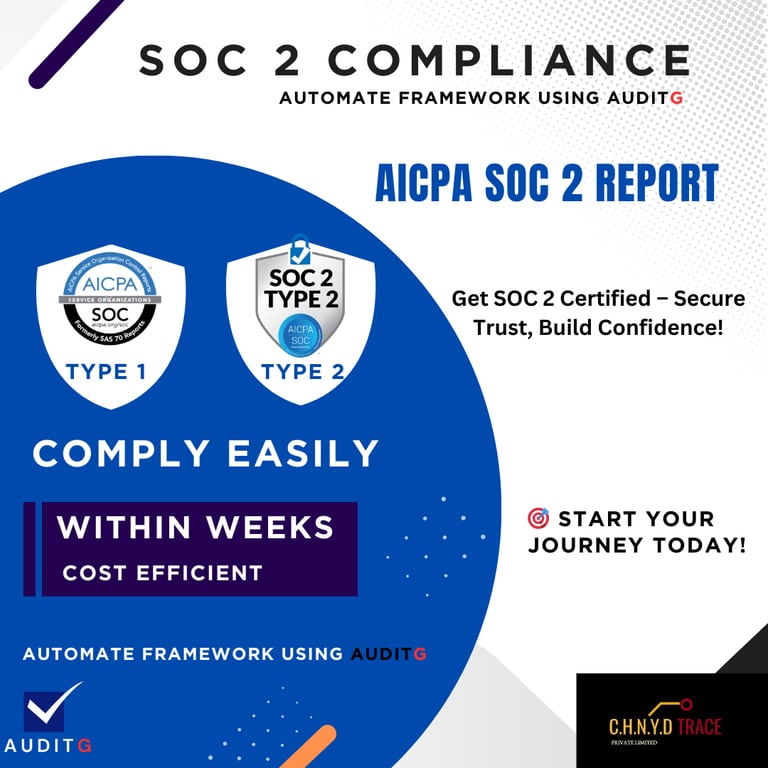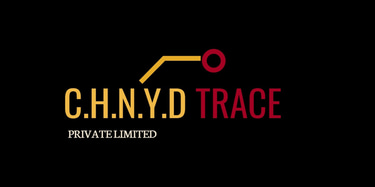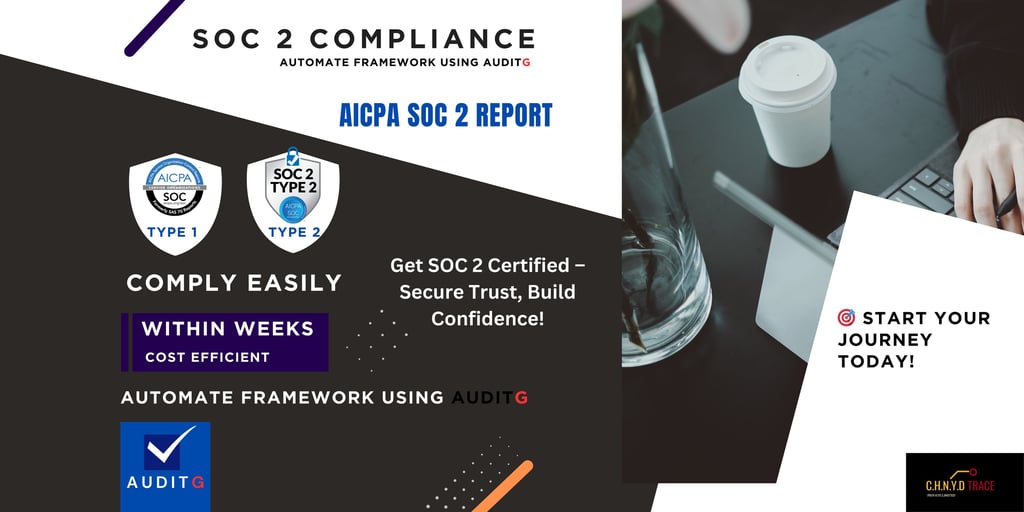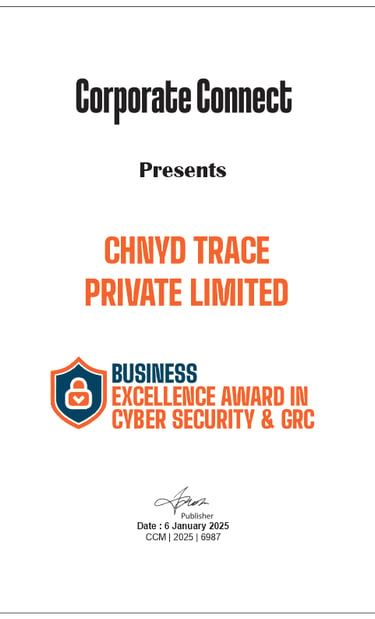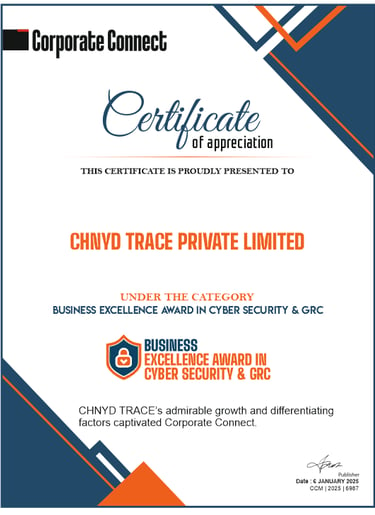soc 2 certification meaning
SOC 2 Certification Meaning: What It Is and Why It’s Crucial for SaaS Companies
2/28/20235 min read
What is SOC 2 Certification?
SOC 2 certification is a crucial framework designed to ensure that service providers, particularly those in the Software as a Service (SaaS) sector, manage customer data with a high degree of security and efficiency. Developed by the American Institute of CPAs (AICPA) in the early 2010s, this certification is based on the Trust Services Criteria, which focuses on five core principles: security, availability, processing integrity, confidentiality, and privacy. These principles serve as benchmarks for evaluating a company's data protection practices.
The security principle emphasizes the protection of data against unauthorized access, ensuring that only authorized personnel can access sensitive information. The availability principle addresses the accessibility of the service, ensuring that it remains operational and can be relied upon by clients. The processing integrity principle guarantees that the system delivers accurate and timely processing of data. Meanwhile, the confidentiality principle assures that sensitive information is protected and shared only with authorized individuals. Lastly, the privacy principle ensures that personal data is collected, used, retained, disclosed, and disposed of in compliance with relevant privacy laws and regulations.
The journey to achieving SOC 2 certification involves a rigorous auditing process. Companies must undergo an assessment by an independent auditor to evaluate their compliance with the criteria mentioned. There are two types of SOC 2 reports: Type I and Type II. A Type I report evaluates the design and implementation of controls at a specific point in time, whereas a Type II report examines the effectiveness of these controls over a period, typically 6 to 12 months. Successfully obtaining SOC 2 certification not only enhances a company's credibility but also reassures customers that their data is handled securely and responsibly, fostering trust in the company's services.
The Importance of SOC 2 Certification for SaaS Companies
SOC 2 certification is increasingly becoming a critical asset for Software as a Service (SaaS) companies. This certification serves as a benchmark for demonstrating a company’s commitment to safeguarding customer data, which is paramount in today's digital landscape where data breaches are prevalent. By achieving SOC 2 certification, SaaS companies provide their customers with assurance that their data is managed with a high standard of security, privacy, and compliance. This not only fosters customer trust but also enhances the company’s reputation in the marketplace.
In a competitive SaaS environment, organizations that possess SOC 2 certification can differentiate themselves from competitors lacking such credentials. Customers are more likely to choose a service provider that has undergone rigorous third-party audits and meets the established Trust Service Criteria. This competitive advantage is indispensable for SaaS companies aiming to expand their client base and establish long-term relationships. As clients become more discerning about their cybersecurity choices, demonstrating compliance with SOC 2 standards helps in sustaining market relevance and attracting new business.
Moreover, obtaining SOC 2 certification assists SaaS companies in ensuring compliance with various regulatory frameworks such as GDPR and HIPAA. By adhering to these standards, companies can mitigate the risks of non-compliance, which may lead to penalties or legal ramifications. In practical terms, many businesses have reported enhanced customer retention and satisfaction after achieving certification. For instance, firms that have embraced SOC 2 principles often experience streamlined onboarding processes due to increased transparency and clear data handling practices.
In conclusion, the importance of SOC 2 certification for SaaS companies cannot be understated. It builds customer trust, offers a competitive edge, and aids in regulatory compliance, ultimately contributing to an organization's long-term success and credibility in the industry.
The SOC 2 Compliance Process
Achieving SOC 2 compliance is a systematic process that requires thorough preparation and attention to detail. This process starts with an initial assessment of the current security practices within the SaaS company. It's important to establish a clear understanding of the criteria defined by the AICPA regarding the Trust Services Criteria: Security, Availability, Processing Integrity, Confidentiality, and Privacy. This foundation sets the stage for identifying areas of improvement.
Once the initial assessment is completed, the company should conduct a gap analysis. This involves comparing existing practices against the SOC 2 requirements and pinpointing any deficiencies. Identifying these gaps is crucial, as it allows the SaaS provider to understand where enhancements are necessary. Prioritizing these improvements is key to developing an effective action plan that will address the identified weaknesses.
Implementing the necessary controls is the next step in the compliance journey. This phase may include updating existing security measures, developing new protocols, and training staff on updated practices. To facilitate this, organizations often utilize a combination of internal resources and external tools, such as compliance management software or professional consulting services, which can provide valuable insights and accelerate the implementation process.
The timeline for achieving SOC 2 compliance varies based on the size and complexity of the organization. Generally, companies should expect the process to take anywhere from three to six months. This estimate accounts for the time required for implementing enhancements and preparing for the final audit. To ensure a smooth audit experience, maintaining clear documentation throughout each stage of the process is essential. This documentation will not only aid in the audit itself but will also serve as a reference for future compliance efforts.
In conclusion, a structured approach to the SOC 2 compliance process will enable SaaS companies to effectively navigate the various components of certification. By conducting thorough assessments, addressing gaps, and implementing the appropriate controls, organizations can achieve a successful audit and demonstrate their commitment to security and trustworthiness.
Maintaining SOC 2 Compliance: Best Practices
Achieving SOC 2 certification is a significant milestone for Software as a Service (SaaS) companies, but the journey does not end there. Maintaining SOC 2 compliance is crucial to ensuring the effectiveness of the established controls and sustaining the trust of customers and stakeholders. It requires a proactive commitment to continuous improvement and vigilance against emerging risks.
One of the most important practices for upholding SOC 2 compliance is conducting ongoing risk assessments. Regular evaluations help to identify vulnerabilities and gaps in the existing controls, allowing for timely remediation. Companies should establish a routine schedule for these assessments to adapt to changes in the technological landscape, user behavior, or regulatory requirements. This proactive approach minimizes potential threats to security and ensures that the company remains aligned with SOC 2 standards.
Periodic audits play a fundamental role in maintaining SOC 2 compliance. These audits can be performed internally or through third-party service providers, and they should evaluate both the technical and operational aspects of compliance. An effective audit program not only assesses adherence to SOC 2 criteria but also offers insights into potential improvements in procedures and controls to strengthen the overall compliance posture.
Employee training is another critical component in sustaining SOC 2 compliance. Organizations should implement regular training sessions to ensure that all employees understand their roles in compliance, the importance of security protocols, and the consequences of non-compliance. A well-informed workforce is essential to effectively mitigate risks and ensure that everyone is committed to maintaining the established security framework.
In addition to these practices, companies should monitor changes in the regulatory landscape to quickly adapt their compliance programs accordingly. The SOC 2 renewal process typically occurs annually, necessitating an organization to continually uphold the standards to maintain certification. By establishing these best practices, SaaS companies can foster a culture of compliance, build customer trust, and safeguard their operations effectively.
Contact Us for SOC 2
Reach out for SOC 2 Type 2 certification inquiries and AICPA attestation details. We're here to assist you with your compliance needs.
